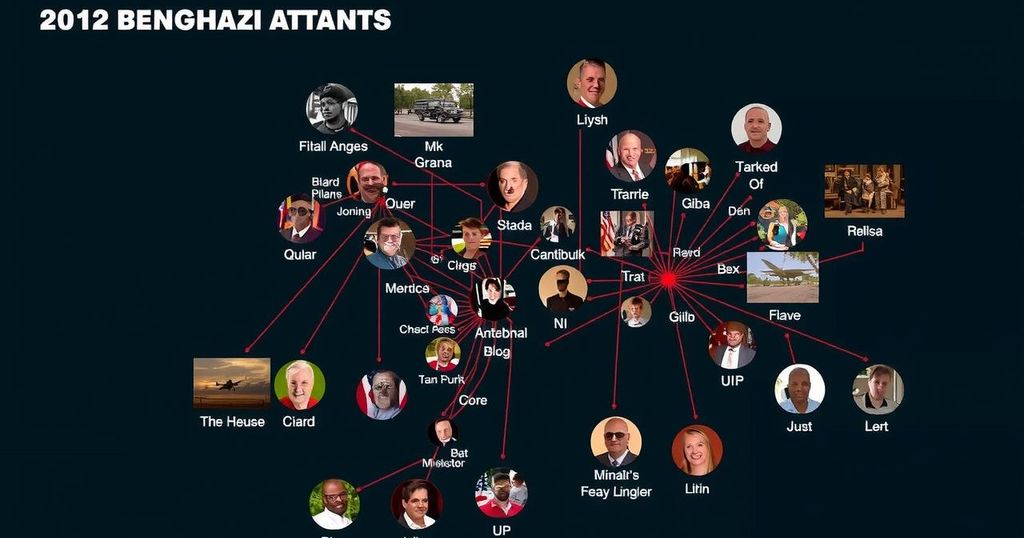Overview of the 2012 Benghazi Attacks: Key Events and Reactions
The 2012 Benghazi attacks were assaults on U.S. diplomatic missions in Libya by militants linked to al-Qaeda, resulting in the deaths of four Americans, including Ambassador Chris Stevens. Initial government explanations were inconsistent, and investigations revealed significant security failures that led to political repercussions in the U.S.
The 2012 Benghazi attacks, occurring from September 11 to September 12, involved assaults on a U.S. diplomatic compound and a CIA annex in Benghazi, Libya, resulting in the deaths of four Americans, including Ambassador Chris Stevens. Stevens arrived in Libya during the 2011 uprising to support the rebels and had been in Benghazi to fulfill his diplomatic duties. The attacks were executed by approximately 150 militants tied to al-Qaeda, who infiltrated the compound, leading to a violent confrontation. Initial government responses were conflicting, attributing the incident to protests related to an anti-Islam video, though it was ultimately deemed a planned attack by the group Ansar al-Sharia. The aftermath prompted several investigations that criticized the U.S. government for inadequate security measures, with Secretary of State Hillary Clinton accepting blame for the failures. The attacks incited intense political debate, especially during the approaching presidential election, and continued to be a subject of scrutiny with investigations culminating in a 2016 report.
The 2012 Benghazi attacks occurred against the backdrop of the Libyan uprising, which began in February 2011 and eventually led to the removal of the Gaddafi regime. These attacks represent a significant moment in U.S. diplomatic history, as they marked the first assassination of a U.S. ambassador since 1988. Furthermore, the attacks highlighted the vulnerabilities of American diplomatic missions in volatile regions and raised questions about U.S. foreign policy and security protocols in conflict zones. The political ramifications were considerable, impacting the Obama administration and contributing to shaping the national discourse as the 2012 presidential election approached.
In summary, the 2012 Benghazi attacks were a tragic event in which four Americans lost their lives, reflecting the dangers faced by U.S. diplomatic personnel abroad. The incident raised important questions regarding security measures for foreign missions and resulted in significant political fallout in the United States. Ongoing investigations into the attacks revealed institutional failures within the State Department, prompting reforms to prevent similar occurrences in the future.
Original Source: www.britannica.com




Post Comment